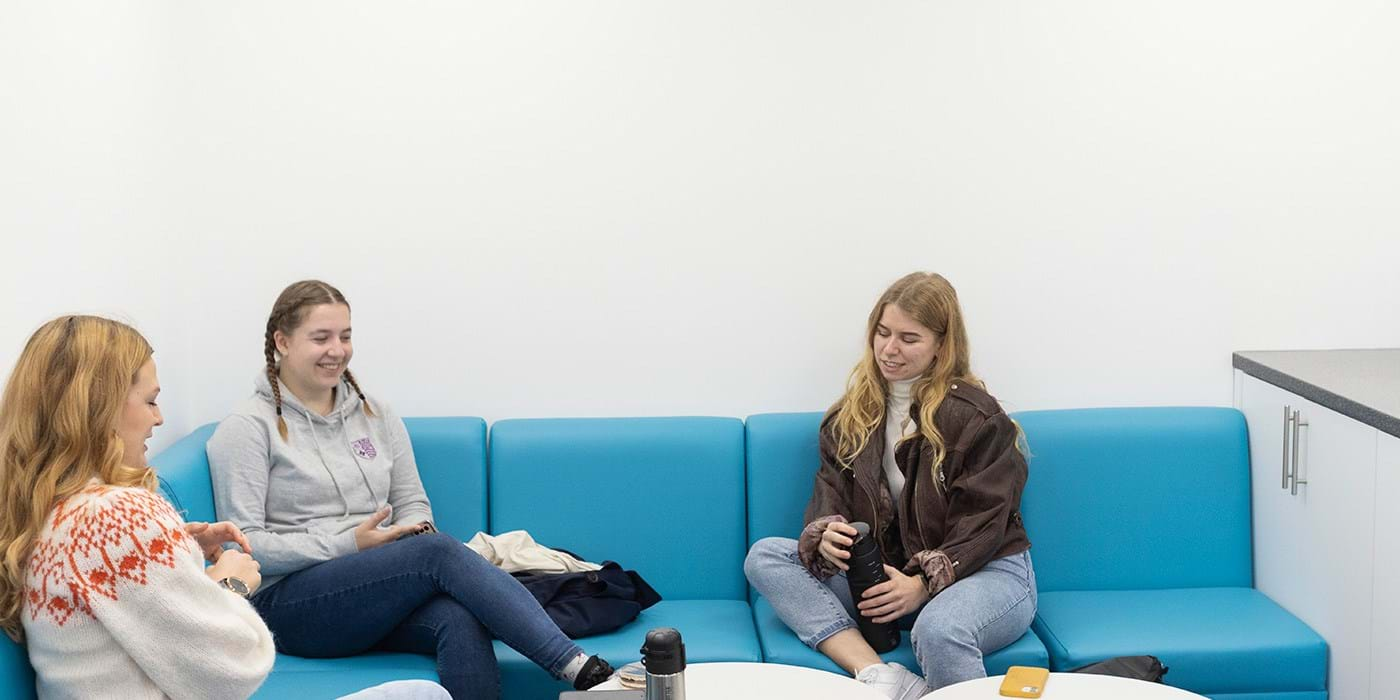Managing Your Money at University

Managing your money, and making sure you have enough money to do everything you need to do whilst studying, is a big part of life as a student.
Make sure you have read about the scholarships and bursaries that AECC University College offers – as well as our Student Support Fund.
In this article, our Student Finance Adviser, Rob Jones, shares his advice on how to make your money go further whilst studying.
From ensuring you are taking advantage of all the grants and bursaries that you might be eligible for, to cutting down your monthly costs in ways you might not have thought of, this article aims to give you some useful tips for looking after your money.
1. Set a Budget
“Spend some time working out how much you are likely to spend each month – such as bills, rent, and food – and make sure that you can afford this. Try and keep within this amount as much as you can.
“It can be helpful to keep a record of how much you are spending. Many banking apps have features that do this for you, which can be really helpful.
“Try and maintain a positive balance on your account as much as possible.”
2. Find a Job
“It’s a good idea to try and find part-time work that can subsidise your living costs whilst studying.
“Working while you study can work to your advantage in the long run, and help build your CV, if you can find part-time work that supports your studies. There are many opportunities within the University to find work – including as a Student Ambassador, or as a Clinical Assistant in our Clinical Imaging department.
“It’s good to find a balance between working enough hours to make your pay worthwhile, whilst also taking care not to burn yourself out by trying to work too much whilst studying.”
3. Check if You are Eligible for Government Benefits
“Make sure you are claiming all of the benefits and bursaries that you are eligible for – that is what these are there for. It’s worth visiting the gov.uk website (link below) and going through each of the funding opportunities, to see which apply to you.”
You can find out whether you’re eligible for government benefits here. These include:
- Support for students with children/dependents
- Universal Credit
- Bursaries for Allied Health Profession Students
- Disabled Students’ Allowance
- Students Studying Abroad
- Funding from Charitable Trusts.
4. Cut Superfluous Spending
“Identify any spending in your outgoings that isn’t necessary, or can be reduced. This might include streaming services or subscriptions. You can ask yourself: how often do you make use of these? Is there any duplication or crossover between services and if so, could you cancel one?”
5. Create an ‘Essential Savings’ Pot
“Even when money is tight, it’s a very good idea to set aside any money that you can for when unexpected costs arise. This might be when something breaks, or you need to make an investment.
“You might not be able to add to this every month, but it’s a good mindset to be in.”
6. Take Advantage of Student Discounts
“It might not seem that this would save too much money, but over time you can save a surprising amount on travel, groceries, and clothing.
“If you’re not sure if there is a student discount available, it’s always worth asking!”
7. Explore Alternative Travel
“Have a think about how you are planning to get around whilst studying at University. If you run a car, you could consider car-sharing, taking public transport, or cycling/walking.
“Much of our private accommodation is located within easy walking distance of AECC University College. Choosing active travel means you can turn your commute to University into an opportunity to keep fit!
“You could arrange to walk/cycle to University with friends.”
8. Batch Cooking
“To save on food costs, consider cooking in batches so that one meal lasts for a few days, rather than just a single meal.
“This is somewhat dependent on fridge/freezer space where you’re living but ‘sharing is caring’ and perhaps if you allow others to help themselves then they could return the favour too.”
9. Make the Most of Free Activities
“Aside from things like walks on the beach, think about things you would do but could approach differently to save costs. Instead of going to the cinema, you could watch a film at home with friends, or instead of paying to go to the gym, you could try some home workout routines.”
10. Guard Against Scams
“There are lots of instances of scammers trying to lure students into ‘get rich quick’ schemes at the moment, that turn out to just exist to steal money for the benefit of the scammers.
“Stay alert, and if a deal looks too good to be true, then it usually is.”
Further Reading for Money-Saving Tips
- Money Saving Expert has created a guide for students, with over 50 tips for saving money
- Save the Student has collated 83 tips for saving money and a list of things students are entitled to for free
- WonkHE offers a list of 100 tips for negotiating the cost of living increase as a student
- Which? categorises tips into different support topics, for focused help.
If you have any questions about Student Finance at AECC University College, you can contact our Finance team by emailing: studentfinance@aecc.ac.uk